
Steve Hays of Tribalblogue is an anti-Catholic polemicist and sophist. I’ll be responding to the relevant portions of Steve’s article, “Ten objections to sola scriptura-1” (4-22-04, Tribalblogue). His words will be in blue.
*****
Over the years, Catholic apologetics has raised a number of objections to sola Scriptura. Let’s run through the major objections and rebut them one by one.
And let’s decisively refute his supposed rebuttals . . .
1. It’s a recipe for chaos:
Catholic apologists often point to the proliferation of Protestant denominations as proof that the right of private judgment is infeasible (cf. Vatican I, preamble).
This is self-evident. The New Testament everywhere casually assumes one institutionally and doctrinally united and visible Church: not thousands of competing and endlessly contradicting denominations: in effect, theological relativism and ecclesiological chaos.
This objection rests on two or three related assumptions: (i) this is an intolerable state of affairs which God would not allow to go unchecked;
Not without recourse: which there is in Catholicism.
(ii) God has made provision for some instrumentality that would guard against such disunity,
It’s called the Catholic Church.
and (iii) the Roman Church does not suffer from this internal strife since it is the repository of this unifying instrumentality. That is perhaps the major objection to the right of private judgment, and therefore calls for the most detailed reply:
It doesn’t suffer such strife in its actual theology “on the books” (magisterium: compiled in Denzinger and on a more popular level, Ludwig Ott and in the Catholic Catechism) but it does among renegades within the fold who are self-aware dissidents / heterodox / theological liberals, who care little about the dogmas and doctrines already there, which bind the Catholic faithful. Therefore, institutionally it is unified in a way that cannot be said of any other Christian communion. And in the end that is all we can sensibly go by in comparing competing Christian views.
(a) The Catholic apologist is taking his own denomination as the standard of comparison, and then pointing as accusing finger at the “schismatics.” While this is a natural starting-point for him, it assumes the very claim at issue. I, as a Protestant, do not regard the Roman Church as the yardstick. Otherwise I would be Catholic! Rather, I regard the Roman Church as just one more denomination, and hardly the best.
Not at all. We are examining what the Bible says (it teaches one unified set of doctrinal truths and one body, the Church) and looking around to see which institution out there best harmonizes with the biblical description. It’s no contest. To even claim that any Protestant denomination fits this bill is to utter something that is a laughable farce as soon as it is suggested. Nor does the merely “invisible / mystical Church” canard work for a second.
(b) God put up with a wide diversity of sects and schools of thought in 1C Judaism. We read of Pharisees, Sadducees, Samaritans, Essenes, Zealots, Therapeutae, Jewish Gnostics, Jewish Platonists, Qumranic separatists, as well as the Rabbinical parties of Hillel and Shamai. Doubtless there were many additional groups that our partial and partisan sources have failed to preserve for posterity. Yet God never saw fit to install an infallible Jewish Magisterium in order to prevent this plurality of viewpoints.
Actually, He did in various ways: in the Torah, the oral law also given to Moses, in the priests & Levite teachers, the prophets, and at length the scribes, Pharisees (Moses’ Seat), and rabbis. All of these — to varying degrees — had profound guiding authority (with the prophets being infallible). Conversely, in no way did the Old Testament Jews hold to sola Scriptura at any time, as I have demonstrated in many ways.
So the objection is based on nothing more than a seat-of-the-pants hunch about what God is prepared to permit. It doesn’t appeal to any of God’s revealed purposes—the disclosure of his decretive or preceptive will in Scripture. It doesn’t bother to anticipate any concrete counter-examples. Far from there being a presumption in favor of the Catholic claim, the precedent of God’s former dealings with his people goes against that expectation. If we find all this diversity and dissension under the OT dispensation, why assume that the NT economy must operate according to a contrary set of priorities? Wouldn’t the Catholic rationale apply with equal force to OT church? If Christians require the services of a living Magisterium, wouldn’t the Old Covenant community be under the same necessity? Yet it’s clear from the Gospels that none of the rival parties spoke for God in any definitive sense. The priesthood was the only faction with any institutional standing under the Mosaic Covenant, and its members were frequently and fundamentally mistaken in their construal of its ethical obligations, such as the matter of putting to death their prophesied Messiah. So much for a divine teaching office to ensure unity and fidelity.
Sheer nonsense. This is just a bunch of words jumbled together. I have made scores and scores of biblical arguments related to this whole question of authority: in papers collected on my Bible and Tradition page, and Church page. I demonstrate that denominationalism is most unbiblical in papers collected on my Calvinism & General Protestantism page. We’ll clearly see which side of this debate is more biblical — i.e., in harmony with the Bible –, as this proceeds. No one could possibly miss it.
One of the problems with these utopian scenarios is that they’re premature, reflected a realized eschatology. Utopia awaits heaven and the final state. So much of Catholic apologetics has this armchair quality to it. It makes such large assumptions about what God would never allow to happen. Get up of your chair and take a look out the window! When I observe at the world around me I see that God allows quite a lot. If you want to know what God would allow, you should start with what he has allowed. We can only anticipate the future on the basis of what God has said and done in the past.
More empty words. Sure, God allows (permits) a lot. This doesn’t prove that it is His will. The fact remains that the Catholic Church is doctrinally unified, and uniquely so among any Christian claimant.
As a rule, you can’t disprove a position just because you don’t like the consequences. I’m struck by how many otherwise intelligent, educated people take this solipsistic approach to truth-claims. Most people don’t like cancer, but that doesn’t make it go away. Rather, our attitude should be to study what God has said and done, and then find the wisdom in it. A “dire” consequence may disclose a deeper wisdom in God’s plan for the world.
(c) By excommunicating dissident members, an organization can enforce as much internal unity as it pleases since—by definition—the only people left are likeminded types. So the Catholic appeal is circular. The Magisterium has not succeeded in preventing internal dissension. But its solution has been to externalize some of its internal dissension by exiling certain factions while defining other schools of thought as falling within the bounds of Catholic tradition—even though there’s no real harmony between the respective parties (e.g. Thomists and Molinists), not to mention varieties within a given school. (E.g. versions of Thomism: traditional [Bañez, Scheeben]; transcendental [Marechal, Rahner]; existential [Maritain, Gilson, Rahner], analytical [Geach, Kenny).] So the unity of faith maintained by the Magisterium is a diplomatic and definitional fiction.
Catholicism is not pragmatism: it is taking the Bible as well as the deposit of faith (sacred tradition) seriously. The Bible says there is one truth; so do we, and claim that we are in possession of it in its fullness, guided and protected by God (which factor alone makes it possible: not fallen human beings). Now, one may dispute the claim in many ways, but at least we assert what is clearly the biblical demand and requirement for the one true Church.
In the Church there are many doctrines and dogmas that Catholics must believe; others where diversity of thought is permitted within a wider category that must be believed. Steve brings up Molinists and Thomists. Both parties believe (as they must) in the predestination of the elect. They disagree in speculations about how God predestines. And this is permitted because it is one of the deepest mysteries in theology, and the Church has not yet claimed to know definitively which option is true or truer.
I am not denying the right of a denomination to set doctrinal standards and enforce them. But when the Roman Church draws invidious comparisons between its superior unity and the “scandal” or “tragedy” of Protestant sectarianism, this is an illusion fostered by the way in which the Roman Church has chosen to draw the boundaries in the first place. By setting itself up as the point of reference, by glossing over internal divisions and by classifying anything that falls outside its chosen touchstone as beyond the pale it can—no doubt— present an impressively self-serving contrast. By casting the terms of the debate it has rigged the outcome in its favor. It is only because the Catholic apologist is conditioned by this provincial mindset that he finds such an appeal persuasive.
This is the sophistical game that Steve always plays, but it’s simply not true. It’s a caricature of the Catholic view. Our standard is the Bible and what was taught with great consensus by the Church fathers.
(d) Furthermore, Paul indicates that God deliberately allows for a competition of viewpoints so that the position he himself approves of will emerge by process of comparison and contrast (1 Cor 11:19). One of the unintended services rendered by infidels is in forcing believers to become more thoughtful about their faith. If Voltaire didn’t exist, we’d have to invent him! So the true Church refines its theological understanding by having to fend off infidels from within and without.
Whaddya know: a rare (albeit failed and fallacious) attempted scriptural argument!
1 Corinthians 11:19 (RSV) for there must be factions among you in order that those who are genuine among you may be recognized.
This is a semi-sarcastic remark. Paul makes it very clear that all factionalism and divisiveness and sectarianism is wrong and evil:
Romans 16:17-18 I appeal to you, brethren, to take note of those who create dissensions and difficulties, in opposition to the doctrine which you have been taught; avoid them. [18] For such persons do not serve our Lord Christ, but their own appetites, and by fair and flattering words they deceive the hearts of the simple-minded.*1 Corinthians 1:10-13 I appeal to you, brethren, by the name of our Lord Jesus Christ, that all of you agree and that there be no dissensions among you, but that you be united in the same mind and the same judgment. [11] For it has been reported to me by Chlo’e’s people that there is quarreling among you, my brethren. [12] What I mean is that each one of you says, “I belong to Paul,” or “I belong to Apol’los,” or “I belong to Cephas,” or “I belong to Christ.” [13] Is Christ divided? Was Paul crucified for you? Or were you baptized in the name of Paul? (cf. 2 Cor 12:20; Phil 2:2)*1 Corinthians 3:3-4 for you are still of the flesh. For while there is jealousy and strife among you, are you not of the flesh, and behaving like ordinary men? [4] For when one says, “I belong to Paul,” and another, “I belong to Apol’los,” are you not merely men? (cf. Rom 13:13; Jas 3:16)*1 Corinthians 5:11 But rather I wrote to you not to associate with any one who bears the name of brother if he is guilty of immorality or greed, or is an idolater, reviler, drunkard, or robber — not even to eat with such a one.
*1 Corinthians 11:18-19 For, in the first place, when you assemble as a church, I hear that there are divisions among you; and I partly believe it, [19] for there must be factions among you in order that those who are genuine among you may be recognized.*1 Corinthians 12:25 that there may be no discord in the body, but that the members may have the same care for one another.*Galatians 5:19-21 Now the works of the flesh are plain: fornication, impurity, licentiousness, [20] idolatry, sorcery, enmity, strife, jealousy, anger, selfishness, dissension, party spirit, [21] envy, drunkenness, carousing, and the like. I warn you, as I warned you before, that those who do such things shall not inherit the kingdom of God.*1 Timothy 6:3-5 If any one teaches otherwise and does not agree with the sound words of our Lord Jesus Christ and the teaching which accords with godliness, [4] he is puffed up with conceit, he knows nothing; he has a morbid craving for controversy and for disputes about words, which produce envy, dissension, slander, base suspicions, [5] and wrangling among men who are depraved in mind and bereft of the truth, imagining that godliness is a means of gain.*Titus 3:9-11 But avoid stupid controversies, genealogies, dissensions, and quarrels over the law, for they are unprofitable and futile. [10] As for a man who is factious, after admonishing him once or twice, have nothing more to do with him, [11] knowing that such a person is perverted and sinful; he is self-condemned.
In 1 Corinthians 11:19 Paul is noting that on the human level, the factionalism that sadly occurs will at least have the good effect of making the genuine, orthodox believers evident, and the rebellious heterodox also evident as wolves in sheep’s clothing. He’s not sanctioning it in the least: which is merely Steve’s wishful thinking in trying to shore up a radically unbiblical denominational sectarianism which is precisely the opposite of what the Apostle Paul always calls for and commands. Hence, we see Protestant commentators agree with my take:
The meaning is, not that divisions are inseparable from the nature of the Christian religion, not that it is the design and wish of the Author of Christianity that they should exist, and not that they are physically impossible, for then they could not be the subject of blame; but that such is human nature, such are the corrupt passions of men, the propensity to ambition and strifes, that they are to be expected, and they serve the purpose of showing who are, and who are not, the true friends of God. (Albert Barnes)
But observe what Paul says — there must be, for he intimates by this expression, that this state of matters does not happen by chance, but by the sure providence of God, because he has it in view to try his people, as gold in the furnace, and if it is agreeable to the mind of God, it is, consequently, expedient. At the same time, however, we must not enter into thorny disputes, or rather into labyrinths as to a fatal necessity. We know that there never will be a time when there will not be many reprobates. We know that they are governed by the spirit of Satan, and are effectually drawn away to what is evil. We know that Satan, in his activity, leaves no stone unturned with the view of breaking up the unity of the Church. From this — not from fate — comes that necessity of which Paul makes mention. (651) We know, also, that the Lord, by his admirable wisdom, turns Satan’s deadly machinations so as to promote the salvation of believers. (652) Hence comes that design of which he speaks — that the good may shine forth more conspicuously; for we ought not to ascribe this advantage to heresies, which, being evil, can produce nothing but what is evil, but to God, who, by his infinite goodness, changes the nature of things, so that those things are salutary to the elect, which Satan had contrived for their ruin. (John Calvin)
Those who are heretics were often never in the fold to begin with, and this is my point. Jesus talked about the wheat and the tares that grow up together (Mt 13:29-30), and the wolves in sheeps’ clothing (Mt 7:15), echoed by Paul (Acts 20:29). And St. John states: “They went out from us, but they were not of us; for if they had been of us, they would have continued with us; but they went out, that it might be plain that they all are not of us” (1 Jn 2:19). Thus, we observe such people in the Catholic Church, as well as among Protestants.
It’s determined (on a human, theological level) who is truly — consistently — part of the Church by seeing whether they agree with the Church’s creeds and confessions. That’s the best we can do. Even John Calvin conceded that we can’t know for sure who is among the elect. But we can know who is teaching falsely, by the standard of the Catholic magisterium, guided by the Bible and protected by the Holy Spirit.
(e) I don’t regard the “scandal” of denominationalism as all that scandalous. Granted that all Christians belong to the same family, but in the interests of domestic tranquility many parents have found it necessary to put the boys in separate bedrooms. I’m not endorsing all these denominations. I’d prefer to see everyone in the Calvinist camp. But even Christians who share an identical creed may have differing priorities when it comes to the work and worship of the Church. If all the Reformed bodies were to merge, the style, staffing, message, administration, fellowship and outreach would remain much the same at the level of the local church. They’d just take down the sign outside and put up a new one.
Every Protestant is forced to say this, to rationalize the state of affairs in their general camp, even though the very notion of denominations is fundamentally opposed to scriptural teaching.
(f) It’s my impression that denominationalism owes less to the Reformation than to nationalism and liberalism. There were many nominal Christians as well as closet heretics, atheists and dissenters in the Medieval Church, but when the Church still enjoyed a measure of temporal power and could enforce the party line on pain of torture, death, dispossession or exile, there was naturally an impressive show of outward conformity. But with the rise of nation-states, monarchs resented a rival power-center meddling in their internal affairs. So this nostalgia for the golden age of undivided Christendom— which Luther supposedly wrecked—rests on an ironically profane foundation.
No doubt. It doesn’t make the grotesquely unbiblical sectarianism it any more biblical or any less opposed to the Bible, and is no excuse in the final analysis.
I don’t see that the Roman Church’s rate of retention or recruitment during the modern era is markedly superior to that of the Protestant “sects.” Once it lost its power to coerce dissidents into submission, the Magisterium found that it was limited to the same sanction as its Protestant counterparts— excommunication. (This was also the primary sanction for the OT Church—to be “cut off” from the covenant community.) No more than the Protestant branches does it enjoy absolute sway over its membership. It can’t prevent members from breaking away and forming their own churches. And to a great extent it staves off further schism in its ranks by exceedingly indulgent terms of membership.
This has nothing directly to do with whether denominationalism is God’s will and biblically permitted. It’s simply noting how all Christian communions have ways and means to try to retain their members.
It opposes abortion but never excommunicates Catholic politicians who are complicit in our public policy. It opposes divorce, yet annulments are freely granted to the rich and famous. It opposes homosexuality but then opposes those who oppose homosexual “rights” (Catechism of the Catholic Church, ¶2357-2358). It opposes the death penalty, but has never excommunicated a Mafia Don.
This is merely talking about real or alleged hypocritical or inconsistent policies and applications in the Catholic Church. It has no bearing on whether denominations cause chaos or not (remember Steve’s actual topic, way back when?). They clearly do.
Given a choice I much prefer a plethora of smaller denominations, some good and some bad, to one big bad church. At least with the Protestant tradition you have an avenue of escape. Far better that than a system that generates the Catholic sex scandal. Once you’re committed to your church as the one and only true church, you’ll put up with anything, however horrendous. And that is the history of Roman Catholicism.
This is simply not biblical. The biblical teaching on sinners in the Church is that they do exist, and we should always expect them. We should not even be surprised by horrendous sins like the sex scandal or almost universal acceptance of legal childkilling in the Protestant denominations — and increasingly, even same-sex unions. Paul excoriated the Galatians and Corinthians for their sins, but still called them “churches”; so did Jesus in rebuking the seven “churches” of Revelation.
(g) Likewise, many new denominations are formed as a result of the liberalization of preexisting denominations. Liberals rarely if ever form their own denomination. How could they? Barren theology begets no life. Rather, their modus operandi is to infiltrate and infect a preexisting church and thereby drive out the true believers. Were it not for liberal parasitism, there would be far fewer breakaway denominations.
But that doesn’t represent a novel disagreement. It is only because the faithful continue to believe what they have always believed that they find it necessary to split with a preexisting denomination which has been overrun by a liberal faction that no longer believes the same thing. Schism is as much a mark of doctrinal continuity as it is of superficial disunity. They leave a church because it first left them. Anyone who knows his church history will instantly recognize how true that is.
This is true. The difference is that such liberalism never causes the Catholic Church to change its teaching, so the faithful, genuine Catholics can always stay, whereas in Protestantism, it does often succeed in corrupting whole denominations (thus the faithful “traditional / honest Protestants” are forced to leave and start another). That’s the difference between divine protection and lack of same.
(h) If denominationalism is such a problem, then the Roman Church is a very large part of the problem since—from my standpoint—it’s just one more denomination. The very phenomenon of the Protestant split to which Catholic apologist points only proves that a Magisterium was unable to prevent dissention and schism.
It’s spelled “dissension.” No group: Protestant or Catholic can prevent individuals from going astray and rejecting various teachings. That’s not the issue. The real issue is: how does a Christian communion maintain its orthodoxy and teachings that it has required from the beginning?
The relation between Catholic and Protestant is often represented as analogous to the relation between the trunk and its branches. But both Catholicism and Protestantism represent offshoots of the Latin Church. Trent is not just a linear continuation of the Medieval Church. The Western Church before Trent was more pluralistic in doctrine than the Roman Church between Trent and Vatican I. For example, the Augustinian tradition, though always a minority report, had enjoyed an honored and distinguished representation in the Medieval Church. Luther himself, as we all know, had belonged to a religious order based on that tradition. But in censuring the Protestants, Trent dismantled some cornerstones of Augustinian soteriology (e.g. total depravity, the efficacy and particularism of grace).
Orders such as the Augustinians did not and do not represent doctrinal chaos or dissent or private judgment, as is constant in Protestantism. It’s simply a different style or emphasis of how to live the Catholic life. All Catholics were required to believe certain things, and converts went through an arduous catechetical process before they could be baptized and received into the Church.
(i) There are Protestant denominations (Lutheran and Reformed) that have retained a far more substantive degree of continuity with Reformation theology in its classic creedal expositions (e.g. The Westminster Confession of Faith; The Three Forms of Unity; The Book of Concord) than Vatican II and post-Vatican II theology can honestly claim in relation to Trent. So it’s very misleading to say that Protestants have gone every which way while Rome has stayed the course.
This is sheer nonsense. Vatican II is in complete conformity with the teachings of Trent, and further develop them. Steve simply exhibits his ignorance (a not uncommon thing with him, when writing about Catholicism).
Certainly we see many modern Protestant denominations that are unrecognizable in relation to the theology of the Protestant Reformers. But, of course, one could say the same thing about many Catholic scholars and theologians in relation to Trent. The difference is that Catholics who still believe in Trent are excommunicated (e.g. Lefevbre)
Trent never sanctioned forming a breakaway group and ordaining priests against the wishes of the pope. If Steve thinks otherwise, he’s welcome to cite passage and verse . . .
whereas there is a continuous tradition of unreconstructed Reformed and Lutheran theology extending from the Reformation down to the present day.
Yeah, there are a few million of such folks. Big wow. That is hardly suggestive of being the “one true Church.”
(j) So the right of private judgment did not set a domino effect into motion. And it doesn’t mean that everyone is entitled to his own opinion. Rather, it was set over against blind faith in a self-appointed authority.
Catholic faith is neither blind, nor “self-appointed.” Jesus started the Catholic Church in commissioning Peter. If someone wants self-appointed, that is Martin Luther, who began the “Reformation” sitting on the toilet and figuring out that he was saved by grace: something the Catholic Church had always taught from the beginning and stressed / reaffirmed at the second council of Orange in 529: almost a thousand years before Luther decided to dissent on at least 50 matters of Catholic doctrine and practice (before he was even excommunicated: in 1520). He had no authority to do so. He simply assumed it without reason.
The principle at stake was that only God’s word enjoys dogmatic authority,
. . . which the Bible never ever teaches , therefore it is merely an arbitrary tradition of men, that Jesus and Paul condemn.. . .
and the sense of Scripture has to be established by verifiable methods. It doesn’t cut it to say that Mother Church knows best.
. . . even though the Bible asserts that very thing, notably in 1 Timothy 3:15 and Matthew 16:18-19 and the Jerusalem Council, among other passages.
Instead, a Bible scholar or theologian should be willing and able to take a layman through the process of reasoning by which he arrived at his interpretation so that the layman can follow the argument and see the conclusion for himself. Invoking sacred tradition is no substitute for responsible exegesis.
We don’t teach anything different. All we require are interpretations that don’t contradict received teachings. The Catholic exegete is otherwise as free as an Protestant, and the Church has only definitively interpreted nine passages.
The right of private judgment is the very opposite of individual autonomy—it’s all about accountability. To be sure, this principle can be abused by the willful. But abusing God’s word carries its own inevitable penalty.
Yes it does. And Steve has been doing it over and over in this paper and hundreds of others that he has written.
(k) Theologians like Brunner have contributed to the confusion by pretending that it was inconsistent of Protestants to liberate themselves from the tyranny of the papacy—only to turn around and elevate the Bible to the role of a “paper pope.” This little jingle is very quotable, but it distorts the motives of the Protestant Reformers. Luther and Calvin were concerned with fidelity, not freedom. They were fighting for the freedom to serve God according to his Word. The magisterial Reformation (as opposed to the Radical Reformation) was never an attack on external authority, per se. Rather, it was an issue of submission to a properly constituted authority—God speaking in his word.
It was an essentially / fundamentally inconsistent and self-defeating rule of faith (sola Scriptura) because the Bible itself teaches an authoritative, infallible Church and an apostolic infallible tradition as well as an inspired, infallible Bible: the first two of which sola Scriptura and hence almost all Protestants, reject.
Related to Brunner’s charge is the accusation that conservative Protestants are guilty of “bibliolatry.” This is a clever attempt to put conservatives on the defensive. But it’s a self-defeating allegation. Idolatry is a Biblical category, and therefore presupposes Biblical authority and Scriptural definition. So it is nonsensical to claim that allegiance to Scripture conflicts with Scripture. Bible-believing Christians simply pattern their attitude towards Scripture on the attitude modeled by Christ and his Apostles (Cf. B.B. Warfield, Revelation & Inspiration [Baker 2003], Works, vol. 1.) When, conversely, the liberal denies the absolute authority of Scripture, he is absolutizing his own powers of judgment. As such, he’s guilty of auto-idolatry.
Interesting, but not germane to this discussion, so I’ll pass . . .
(l) Every denomination doesn’t represent a different interpretation of Scripture. And every difference doesn’t represent a disagreement. Many of the different denominations are due to different nationalities. When they all troop over to America it presents quite a spectacle of diversity, but they didn’t all arise due to differences of interpretation.
And as I’ve argued elsewhere, the superficially vast range of doctrinal and denominational diversity is reducible to how you answer four basic questions: (i) Is the Bible the only rule of faith? (ii) Does man have freewill? (iii) How is the OT fulfilled in the NT? (iv) Are the sacraments a means of grace?
There are literally scores of contradictions between denominations, and this means that error necessarily exists somewhere: either one in the case of two contradicting, or both. Falsehood is of the devil, the father of lies. It helps no one. Protestantism institutionalizes it. St. Paul always claimed that he was passing on “the truth”: a unified set of doctrinal teachings. Protestants can’t do that, because if their endless internal contradictions. At best they can only say, “our little sect has all the truth, and those guys don’t.” Then of course the obvious question is “why believe you over against them?
(m) Moreover, these don’t all present a contrast to Catholicism. There are charismatic Catholics. There are Arminian elements in Catholic theology. There are Anglican and Lutheran elements in Catholic theology. There are liberal elements in Catholic theology. So some of these interpretations agree with Catholicism rather than representing schismatic aberrations. Of course, I might view these points of commonality as common errors. But the Roman Church can’t stigmatize them save on pain of self-incrimination.
Required, dogmatic Catholic theology is a unified set of teachings. Charismatic Catholics have been sanctioned by the magisterium, since we believe that all of the gifts and miracles are still operative today (which is the biblical position). It’s people like Steve and his buddy Calvinists who believe in cessation of gifts and miracles: a thing never remotely seen in the New Testament. “Liberal elements” exist among individual dissidents but not in our official theology. This is what Steve can’t grasp and perhaps never will. It’s some sort of intransigent blind spot.
Quantity makes quality possible. Out of the diversity of denominations it is possible to find a number of good churches. Better to have a lot of lifeboats, some of which are seaworthy, and others leaky and listing, than to be trapped aboard a burning and sinking ship.
We’ve discussed the fatal internal difficulties of Protestantism. Steve hasn’t proven that the Catholic ship is sinking. He merely assumes it. As Chesterton observed (paraphrase): “at least five times the faith has gone to the dogs, and in all five cases the dog died.” Steve is one of a long line who seem to feel quite “certain” that the demise of the catholic Church is right around the corner. He’ll die not seeing this happen, just as all the other “prophets” did.
(n) Appeal is sometimes made to Jn 10:16 and 17:20-21. But the unity envisioned here is ethnic and diachronic rather than institutional and synchronic, as the Gentiles are inducted into the covenant community (cf. 10:16a) and the faith is passed on from one generation to the next (17:20).
I wrote way back in 1996 about the meaning and application of John 17 and Jesus’ prayer of unity:
I agree that love is the primary thrust here. But I will not discount the implicit doctrinal oneness, . . . In John 17:22 Jesus prays that the disciples would be “one, as we are one.” And in John 17:23, He desires that they (and us) be “completely one” (NRSV). KJV, NKJV: “perfect in one.” RSV, NEB, REB: “perfectly one.” NIV: “complete unity.” NASB: “perfected in unity.” Now, it is pretty difficult to maintain that this entails no doctrinal agreement (and “perfect” agreement at that). And, reflecting on John 17:22, I don’t think the Father and the Son differ on how one is saved, on the true nature of the Eucharist or the Church, etc. So how can Protestants claim this “perfect” oneness, “as we [the Holy Trinity] are one”? Or even any remote approximation?
(o) The right of private judgment has undoubted generated a great diversity of theological opinion, which is—in turn—reflected in a diversity of denominations. But we’ve always had this. It’s easy to forget about Donatists and Montanists, Novatianists and Waldensians, to name a few pre-Reformation movements, because they were on the losing side of the debate and tended to dissipate over time. So it’s not as if sola scriptura in-traduced a radically destabilizing dynamic into an otherwise cohesive church.
All those groups chose to separate from the Church. And most heresies and schisms appealed to Scripture Alone (just as Protestants) precisely (again, just like Protestants) because they knew quite well that they couldn’t appeal to historical precedent and received tradition (being novelties and innovative teachings). And that’s simply not biblical. They all played games with existing categories and definitions and received beliefs.
Remember, too, that in Reformed theology, all this diversity is a providential diversity. Catholic apologists have traditionally treated the Reformation as if it were a runaway train. But in the plan of God, everything that happens is either good in itself or a means to an ulterior good. There is wheat among the tares. The field exists for the sake of the wheat, not the tares. But in this dispensation you cannot weed out all the tares without uprooting the wheat in the process (cf. Mt 13:24-30). We don’t judge the condition of the field by the presence or even prevalence of the tares. What matters is the state of the wheat.
The problem with this analysis is that the “tares” in the biblical analogy / parable are stray individuals, not entire denominations. I can’t stress it enough: the Bible knows nothing of any legitimate sense of denominationalism. It’s always condemned as factionalism or sectarianism or divisiveness or a force against “the truth / [apostolic] tradition / gospel / word of God.”
(p) Related to (o), critics of the Reformation often appeal to the Vincentian canon as some sort of living ideal which the Reformation violated. This appeal assumes a continuity and commonality of belief throughout the history of the Church, up until the Reformation. But isn’t that an illusion?
No; not for the most part. In the orthodox Catholic Church there was great unity of doctrine.
What was the express creed of your average medieval peasant? Or, for that matter, of the village priest?
That’s ultimately irrelevant. They may or may not have been properly educated, and may or may not have been orthodox and devout. All that matters (in these sorts of discussions) is what the Catholic Church officially taught.
It is natural to form our impression of the Middle Ages from Medieval writers. But that is hardly representative of popular belief. At a time when illiteracy and folk religion were the rule, it isn’t very authentic or meaningful to speak of a core creed shared by the masses. An Athanasius or Aquinas, A Kempis or Dante by no means stands for a popular consensus.
No one is saying that they did. When we refer to unanimous consent, it is referring to the Church fathers, and even this phrase (in Latin) did not mean “absolutely every” but rather, “overwhelming consensus.”
Such an identification leaves the laity entirely out of view, and a large chunk of the lower clergy as well. If anything, it was the Reformation, with its emphasis on Bible literacy, which brought the masses on board. There can be no majority report when the majority is too illiterate and ignorant to exercise explicit faith.
Reports of a very frustrated older Luther (already almost 30 years into his revolt) do not suggest that the “Reformation” was doing all that well in educating the masses, in his own home town:
As things are run in Wittenberg, perhaps the people there will acquire not only the dance of St. Vitus or St. John, but the dance of the beggars or the dance of Beelzebub, since they have started to bare women and maidens in front and back, and there is no one who punishes or objects. In addition the Word of God is being mocked [there]. Away from this Sodom! . . . I am tired of this city and do not wish to return, May God help me with this.
The day after tomorrow I shall drive to Merseburg, for Sovereign George has very urgently asked that I do so. Thus I shall be on the move, and will rather eat the bread of a beggar than torture and upset my poor old [age] and final days with the filth at Wittenberg which destroys my hard and faithful work. . . . I am unable any longer to endure my anger [about] and dislike [of this city].
With this I commend you to God. Amen. (Luther’s Letter to His Wife Katie Regarding the State of Wittenberg: 28 July 1545, in Luther’s Works, Vol. 50, 273-278)
Catholic Luther biographer Hartmann Grisar (Luther, Vol. 3, p. 206) recorded a similar sentiment:
“I confess of myself,” he says in a sermon in 1532, “and doubtless others must admit the same [of themselves], that I lack the diligence and earnestness of which really I ought to have much more than formerly; that I am much more careless than I was under the Papacy; and that now, under the Evangel, there is nowhere the same zeal to be found as before.” This he declares to be due to the devil and to people’s carelessness, but not to his teaching. (Werke, Erl. ed., 18 2 , p. 353).
There are many more such statements. And we could look at how early Protestantism persecuted others just as much — if not more — than Catholicism; the 742 Catholic martyrs of King Henry VIII and Queen Elizabeth, Luther‘s and Calvin‘s advocacy of the death penalty for Anabaptists, the outright theft of thousands of Catholic churches, its hostility towards art, and its iconoclasm, antipathy towards higher education, and towards science, etc., etc. ad nauseam.
***
Photo credit: TheDigitalArtist (8-2-15) [Pixabay / Pixabay License]
***



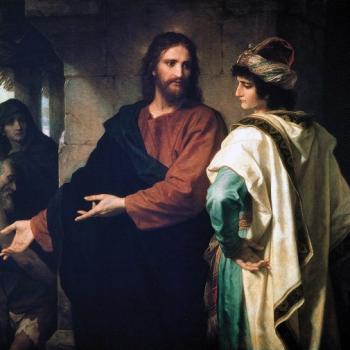
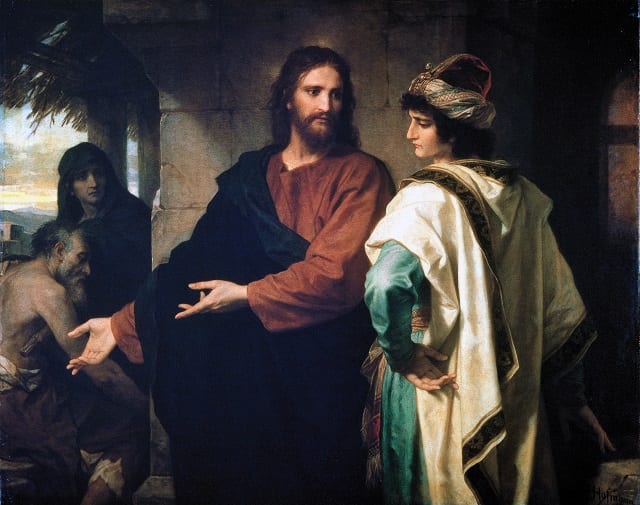



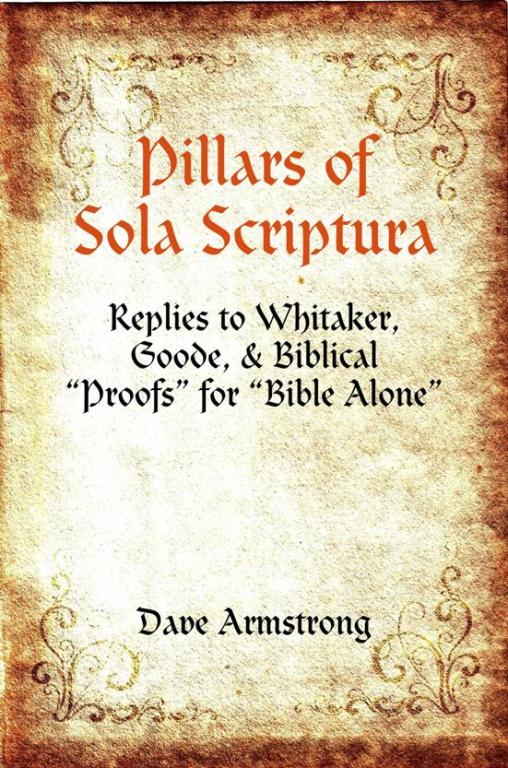

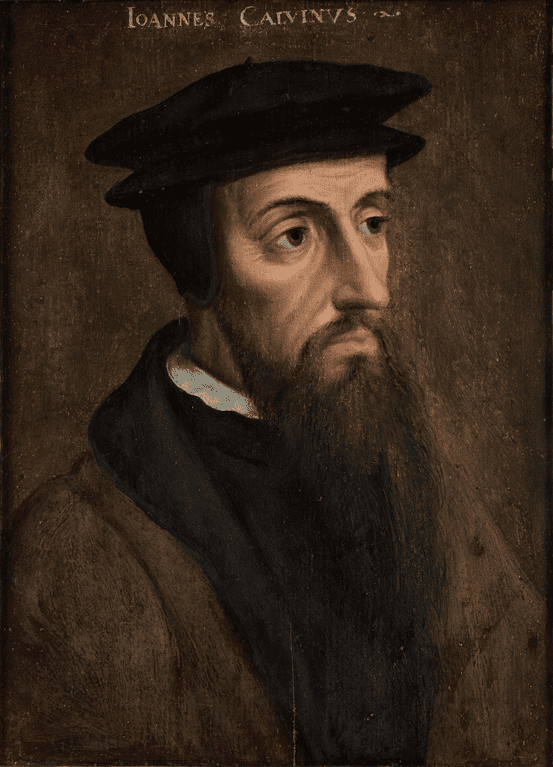

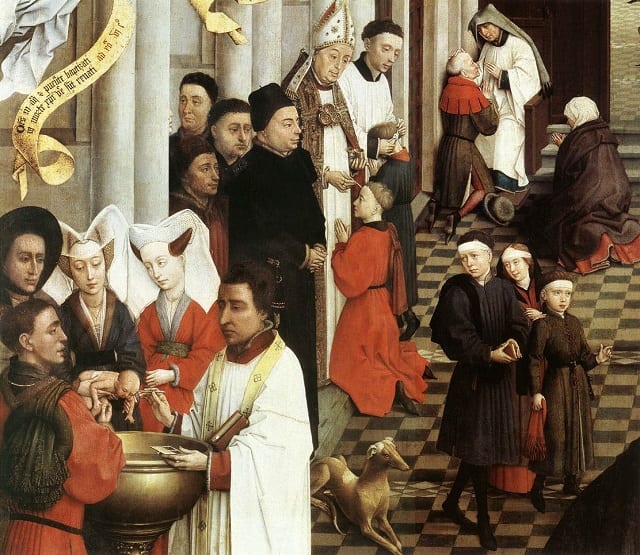
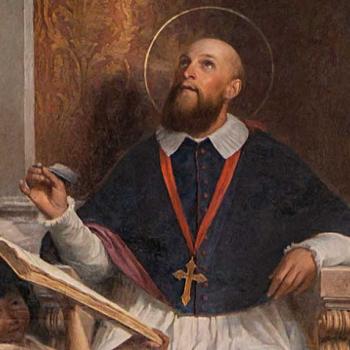
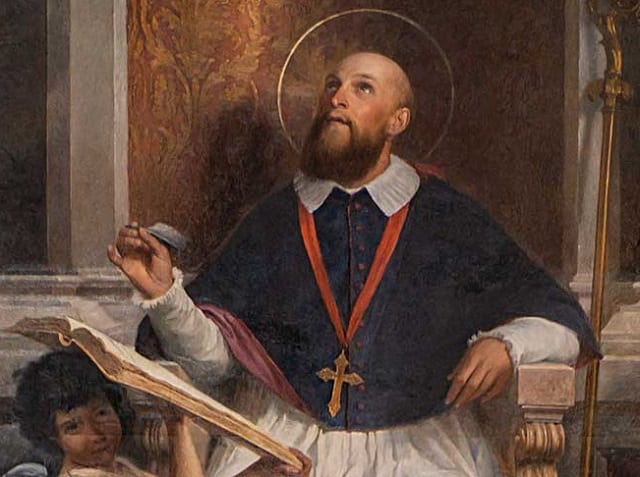






So what exactly is the dispute under consideration? Here are the standard passages from Calvin that are used to demonstrate (though not with absolute conclusiveness; I agree) that he believed in the perpetual virginity of Mary: